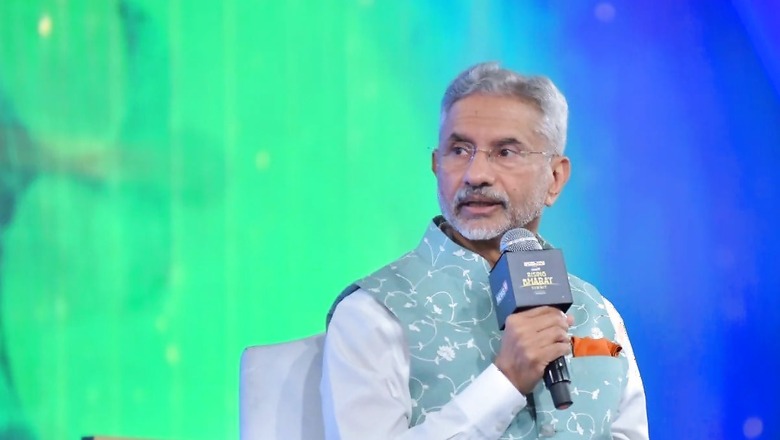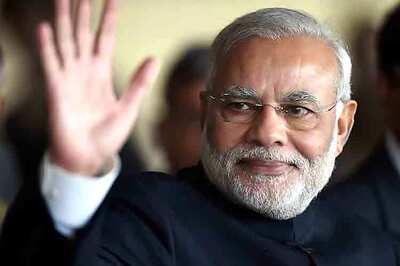
views
External Affairs Minister S Jaishankar on Tuesday said the border standoff between India and China will continue until there are forward deployments of militaries on the border and noted peace agreements were violated by China in 2020.
He said this at an event hosted by Carnegie Endowment in the US. India and China have been engaged in a territorial face-off since 2020 after the Chinese Army transgressed into multiple areas from the Galwan Valley to the Finger area along the Pangong Lake.
Speaking about ties between India and China, he said, “In terms of our relationship with China, I think it’s a long story, but the short version is that we have agreements on how to keep the border peaceful and tranquil, and those agreements were violated by China in 2020. And some of the…because we have forward deployments of our militaries, there are resulting tensions. And until those forward deployments are addressed the tensions would continue. If the tensions continue, it casts a natural shadow over the rest of the relationship. So our relationship hasn’t been great for the last four years.”
The India-China standoff at the border is continuing as multiple rounds of military and diplomatic discussions did not reap results.
Jaishankar noted that China accounts for about 31-32% of global manufacturing and stressed that it has happened as the international community, primarily Western-led, over the past few decades has opted to collaborate with China for mutual benefit.
In discussing India’s strategic landscape concerning China, Jaishankar remarked, “When it comes to trade, China accounts for about 31-32% of global manufacturing. This has resulted from decades of collaboration between Western-led international businesses and China for mutual benefit. Consequently, for any country involved in consumption or manufacturing, sourcing from China is often unavoidable, as it provides many goods at the lowest prices. Even in manufacturing, many components and semi-processed materials come from China.”
He noted that trade with China can be seen as somewhat separate from political relations, emphasizing the importance of examining what is being traded. Different countries have varying sensitivities regarding their exposure to China. Jaishankar expressed concern that while there is significant debate about securing data within national borders, less attention is paid to data that leaves those borders. He stressed the need to assess risks and find ways to mitigate them in today’s data- and technology-sensitive world.
In August, India and China held the 31st meeting of the Working Mechanism for Consultation and Coordination on India-China Border Affairs in Beijing. The two sides agreed to maintain peace and tranquility in border areas in line with relevant agreements. They engaged in a “frank, constructive, and forward-looking” dialogue about the Line of Actual Control (LAC) situation and committed to enhancing communication through diplomatic and military channels.
The Ministry of External Affairs stated that following recent meetings between Foreign Ministers in Astana and Vientiane, the discussions aimed to address differences and resolve outstanding issues. Both sides reiterated that restoring peace, tranquility, and respect for the LAC are crucial for normalizing bilateral relations.
(With ANI inputs)




















Comments
0 comment